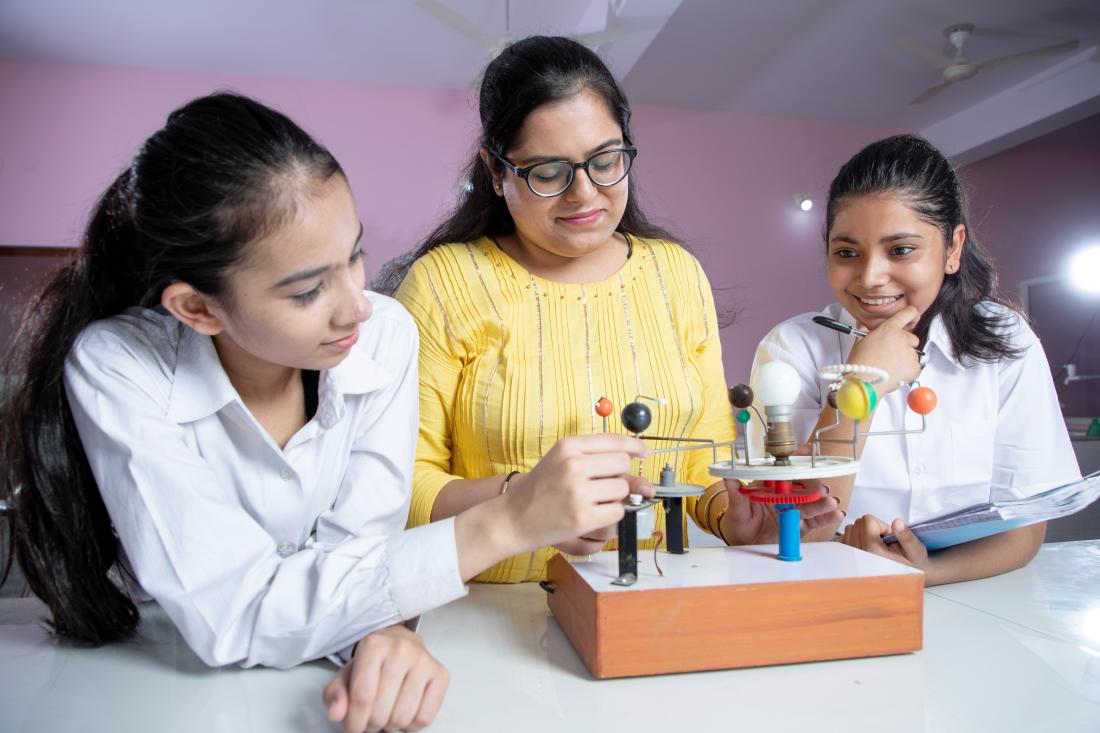Training Teachers in Curiosity-Based Science Pedagogy in India
- Children
- Secondary schools
- Students
- Teachers
- Women and girls
Despite making great strides in expanding access to education, developing countries like India continue to lag in measures of actual student learning. To understand how quality of education mediates learning, this randomized control trial evaluates a pedagogical intervention training science teachers in rural Uttar Pradesh, India. The curiosity-based curriculum emphasizes practical techniques along with foundational principles on effective answer-seeking, guided research, constructive feedback, and peer-to-peer communication. The researchers assess whether active teaching approaches increase student recall of course material, curiosity, student engagement, critical thinking, and other soft skills foundational to developing students’ intrinsic motivation to learn.
Policy issue
Primary school attendance and completion rates in India have significantly increased in recent decades. In spite of this progress, expanding access to schooling has not successfully inculcated foundational academic concepts in many Indian primary school children. These students are not only unprepared to meaningfully engage with upper primary school curricula, but may also fail to develop key soft skills including critical thinking and curiosity, which may improve later life outcomes and earnings. Recent evidence suggests that traditional teaching methods taught in classrooms, like rote memorization and teacher-centered lectures, may not effectively improve children’s learning.`1
In response, the Ministry of Education’s 2020 National Education Policy calls for shift away from rote learning to more hands-on, question-based methods, emphasizing the need for new curricula teaching children how to learn, problem-solve, and think critically. Answering this call, the authors will evaluate a science teacher training program to assess its impact on student learning and holistic skills, outcomes targeted by India’s education policy. Many regional and state governments have expressed interest in evaluating new pedagogies and curricula. If successful, this program may serve as a sustainable, scalable model for effective science education throughout India.
Context of the evaluation
Although 90 percent of children in India ages 6 to 14 are enrolled in school,`2 only 30 percent of 14-year-olds (8th grade) can read above a 2nd grade level, whereas more than 25 percent cannot do subtraction. Students also struggle in other subjects: 54 percent of 10th grade students in India failed the science section of their standardized exams in 2022. The evaluation takes place in public upper primary schools, which include grades 6 through 8 (children ages 11 to 14 years old). The evaluation team has partnered with Agastya International Foundation, known for their pioneering work in pedagogical development, to deliver the teacher trainings.

Details of the intervention
The researchers are conducting a randomized evaluation to test the impact of a science teacher training program on student curiosity, content memory, science test scores, in-the-moment problem-solving, communication skills, and critical thinking in Uttar Pradesh, India. Researchers are collecting data on teacher performance, style, beliefs, and effort to better understand how the teacher training may influence student outcomes.
The sample schools are randomly assigned to either receive a training program or to serve as the comparison group, with teachers carrying out their usual practices. The intervention include training sessions delivered to groups of teachers teaching science at grades 6-8, near the beginning of the school year in July 2024. WhatsApp group chats are also set up for each group of teachers to create community, enable teachers to share their perspectives, and answer any questions.
Results and policy lessons
Research ongoing; results forthcoming.